
Healthy eating is a widespread and popular topic today. The internet is just full of advice and recommendations, but following them thoughtlessly is unreasonable and just plain unhealthy.
Therefore, when putting together a proper nutritional menu, you should consult a nutritionist. And in general, it will not be superfluous to study the specialized literature on this topic. The main thing is to use reliable sources. For example, the World Health Organization regularly addresses the topic of proper nutrition in its methodological materials.
Therefore, the organization's specialists presented 10 principles that make any diet more useful:
- A varied diet allows the body to receive the full variety of nutrients;
- Whole grain products have a beneficial effect on the intestinal microflora and improve its work.
- Fruits, vegetables and nuts are the best snacks;
- A teaspoon of salt a day is the daily norm for an adult, so it's better to under-salt than over-salt;
- It is necessary to monitor sugar consumption and also to pay attention to the so-called hidden sugars.
- Moderate consumption of fatty foods;
- In the daily menu it is better to give preference to fish or poultry and limit the consumption of red meat.
- Ready meals are a rich cocktail of trans fats, salt, sugar and a variety of artificial additives;
- Fried foods will never be healthy;
- Alcohol in any quantity is harmful to health.
Of course, the tips in this handbook do not contain any specific information, so it is not possible to put together a correct nutrition plan. But to use it as a guide for further work - you can be quite successful.
In addition, the best option when choosing a new diet is to consult a nutritionist. A doctor with such training gives a professional opinion and creates a menu that is not only healthy, but also nutritious and tasty. And today it is not necessary to visit clinics for this. Many nutritionists host open lessons and workshops where they share their secrets and educate others.
How do I create a proper nutrition menu?
The first step to a healthy diet is the menu. Finally, the list of "allowed" products determines the variety of dishes and the system of snacks.
Nutritionists are guided by several key principles when constructing a proper nutritional menu:
- Meat in the diet should be combined with vegetables and fruits;
- To function properly, you need to consume around 100-150 grams of protein per day;
- If desired, sweets can be included in the diet. However, it is important to remember that their use should be calculated strictly according to the amount of sugar, and you should not eat desserts in the afternoon;
- Canned and semi-finished products, all kinds of sauces, as well as representatives of fast food under the strictest ban;
- The food pyramid is a great way to organize your meals to guide you.
It is also important to pay attention to the time intervals between meals when putting together the menu. Depending on their duration, the saturation of dishes with certain elements is determined. But there are also very general rules. For example, breakfast is best half an hour after waking up and dinner about three hours before bedtime.
Features of a weight loss eating plan
It is important to understand that the nutrition plan also depends on what goals are being pursued. So we can distinguish a nutrition plan for children, a nutrition plan for various diseases, a pre-competition athlete nutrition plan and, of course, a diet plan for losing weight.
First of all, we note that weight loss is impossible without a proper and balanced diet, and the latter never meant subsisting on water and vegetables. With this we return to the principles of WHO - a variety of food provides the human body with the full range of useful elements. This rule must be taken into account when composing the menu.

If you want to lose weight with the right diet, you should also follow a few more rules:
- You should eat at certain time intervals, then the body develops a regime;
- Meals should be fractional, the most optimal option is 5 times a day;
- When planning meals, you can't go against your lifestyle. Rather, on the contrary, the menu should be tailored to it.
Thus, we get two options for a diet designed for those who get up early and late:
| Nutrition plan for "Larks" | Eating mode for "owls" | ||
|---|---|---|---|
| 7. 00 | breakfast | 10. 00 | breakfast |
| 10. 00 | First snack | 13. 00 | First snack |
| 13. 00 | dinner | 15. 00 | dinner |
| 16. 00 | Second snack | 17. 00 | Second snack |
| 19. 00 | dinner | 20. 00 | dinner |
Another feature of creating a weight loss menu plan is calorie counting. To do this, you need to keep a record of all the food you eat during the day. And this is very easy today, because there are a large number of special applications for such purposes.
How do you plan meals for each day?
Proper nutritional planning is a time-consuming process that requires consideration of the following when creating it:
- The ratio of proteins, fats and carbohydrates can vary depending on the goal pursued. For example, during the so-called "drying" it is recommended to increase the percentage of protein consumed;
- General calculation of calorie content - in this, the required daily calorie dose, which varies with age and lifestyle, should be evenly distributed;
- A variety of products that match in terms of nutritional and calorie content - only proper and balanced nutrition can give the result. Refusing to eat will only harm your health.
It is also important to remember that "unplanned" snacking should not be seen as a tragedy, but makes sense to analyze it and change the frequency or composition of subsequent meals. Another stumbling block can be new foods for the diet. During a dietFor example, it is best not to experiment with new flavor combinations as these can also adversely affect the cycle.
In dietetics courses you can learn more about the rules of nutrition and the principles of a sensible diet.
Summing up, we can conclude that the following categories of products should be the basis of an adequate nutritional menu:
- Chicken;
- Turkey;
- Fishes;
- Seafood;
- eggs;
- Dairy products;
- Fruit;
- Vegetables;
- greens;
- Nuts;
- seeds;
- natural spices;
- Spices;
- Whole grain products;
- Legumes;
- Olive, Flaxseed, Corn, Sesame Oil.
It is necessary to exclude from the diet:
- sausages;
- smoked products;
- canned food;
- vacuum packed snack foods;
- semi-finished products;
- sauces;
- Prepared meals for heating in the microwave;
- Fast food;
- carbonated drinks;
- juices in packets.
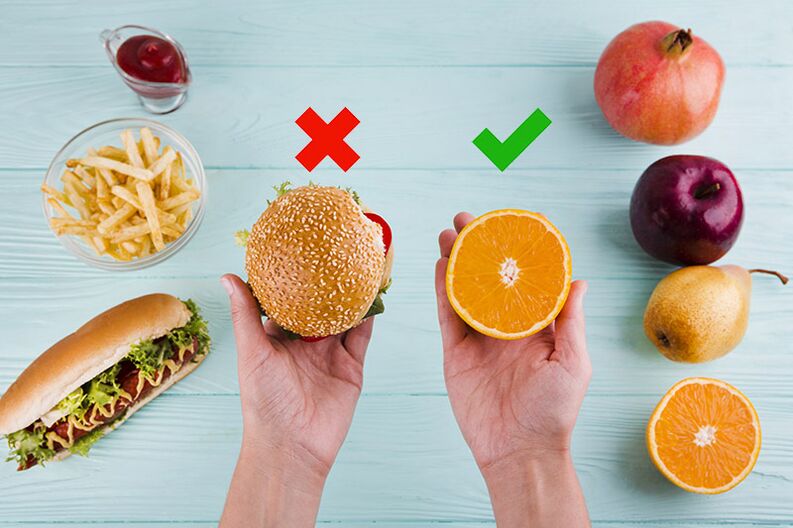
Separately, it should be noted that salted nuts are not part of proper nutrition, like all products that contain an increased content of spices, additives and flavorings. Confectionery should be kept to a minimum, and the composition of such products should also be treated responsibly. For example, you might have an oatmeal muffin for breakfast.
weekly nutrition program
In general, a balanced healthy diet can be very varied, so it is entirely possible to develop a menu in which there will be new dishes every day. We present an example of a menu for a week in accordance with all the recommendations given previously:
| weekday | breakfast | dinner | dinner |
|---|---|---|---|
| Monday |
|
|
Baked fish, vegetable salad as a side dish. |
| Tuesday |
|
|
|
| Wednesday |
|
|
Chicken fillet with baked vegetables. |
| Thursday |
|
|
Pita with lean beef, lettuce, dressing - plain yogurt, garlic and dill. |
| Friday |
|
|
|
| Saturday |
|
Couscous with carrots, onions, corn, green peas. |
|
| Sunday |
|
|
|
It should be noted that fruits and nuts must be removed from the main menu when introducing small snacks into the diet. In other words, an apple from breakfast carries over to an afternoon snack. A similar system can be used in reverse, adding snacks to the main meals - breakfast and lunch.
It's also important to remember that servings are calculated individually based on age, health status, lifestyle, and daily calorie intake. Therefore, the portion size will be different for men and women.
Recipes for proper nutrition
We offer several simple but tasty and healthy dishes for every day.
- Smoothies - 67-70 kcal / 100 gr.
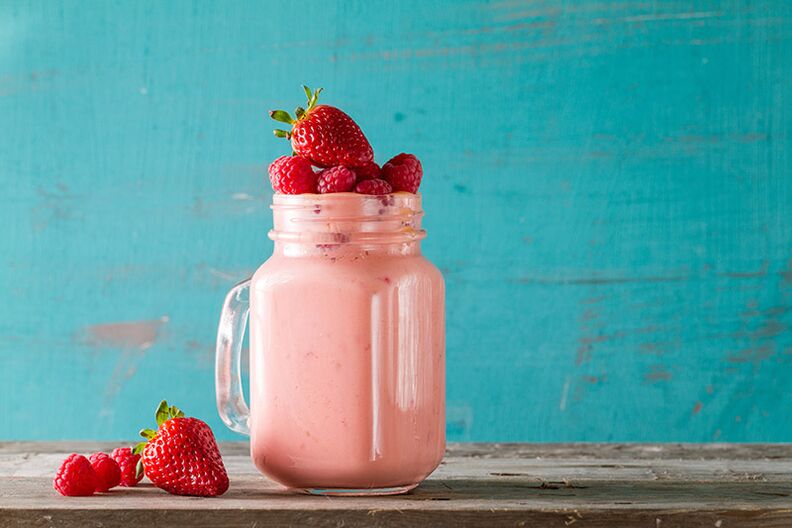
Ingredients:
- Banana - 1 pc.
- Oatmeal - 30 gr.
- Yoghurt (or kefir) - 100-150 gr.
- Vanilla - to taste.
Blend all ingredients in a blender until smooth. If desired, you can also add a peach or pear, but not without the abuse of sweet fruits.
- Oat and apple pancakes - 152 kcal / 100 gr.

Ingredients:
- Oatmeal - 80 gr.
- Medium-sized apple - 1 pc.
- Chicken egg - 1 pc.
- Honey - 30 gr.
Grind oatmeal in a blender. Wipe the apple, mix with the resulting powder and egg. Fry the pancakes for about 3 minutes on each side. The dish can be served with honey.
- Lecho salad - 50 kcal / 100 gr.
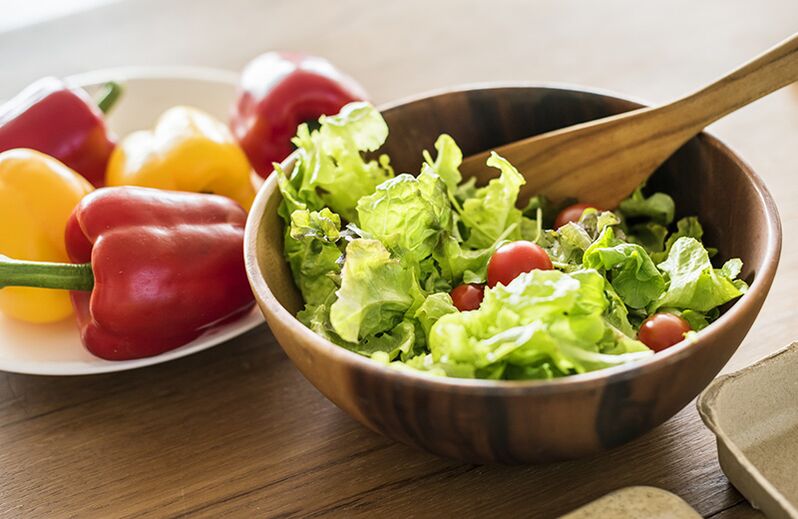
Ingredients:
- Bulgarian pepper - 4 pcs.
- Eggplant - 1 pc.
- Tomato - 3 pcs.
- Vinegar - to taste.
- Greens - to taste.
- Salt - to taste.
- Vegetable oil - Item no. a spoon.
Bake the vegetables in the oven for 15 minutes, then remove the peel and cut. Add chopped herbs, oil, vinegar and salt to the resulting salad and mix.
- Mushroom puree soup - 30 kcal / 100 gr.
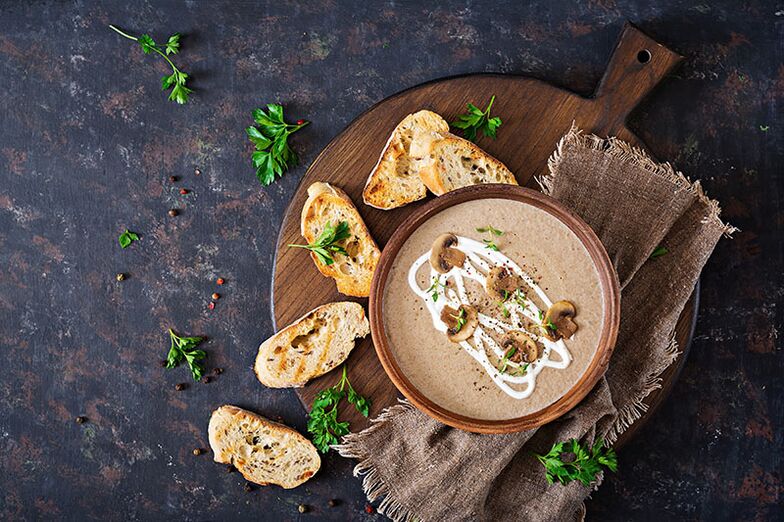
Ingredients:
- Mushrooms - 700 gr.
- Onion - 1 pc.
- Carrot - 1 pc.
- Milk - 250 ml.
- Greens - to taste.
Mushrooms need to be poured with boiling water, let it brew. Cut the onion and carrot, cook with mushrooms for 15 minutes. Boil milk. Put the soup in a blender, add milk, then puree, garnish with herbs if you like.
- Braised beef - 80 kcal / 100 gr.

Ingredients:
- Beef - 100 gr.
- Buckwheat groats - 150 gr.
- Carrot - 1 pc.
- Tomatoes - 2 pcs.
- Onion - 1 pc.
- Lemon juice - to taste.
- Greens - to taste.
Marinate the meat in the onion and lemon juice for an hour. Sauté carrots, tomatoes, onions and beef in a pan. When done, add greens. As a side dish - buckwheat (cook without salt).
- Lean sweet sausage - 269, 98 kcal / 100 gr.
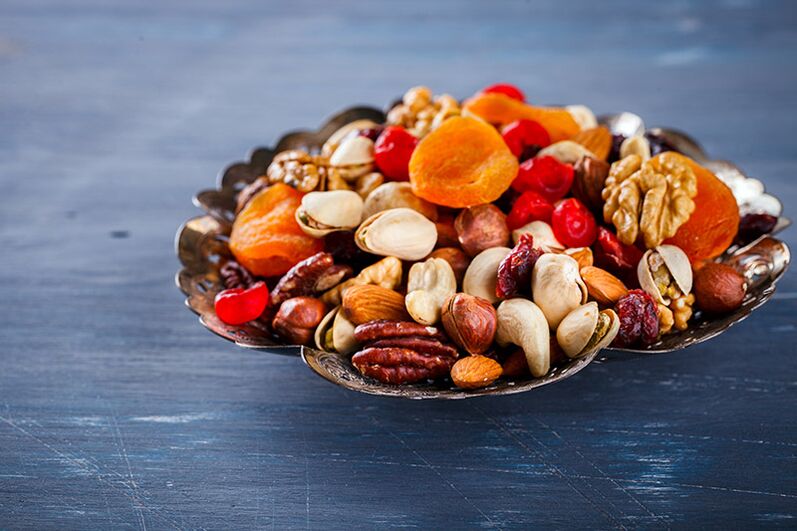
Ingredients:
- Dates - 125 gr.
- Plums - 125 gr.
- Nuts - 100 gr.
- Sesame - 2 tbsp. Spoon.
- Orange - 1 pc.
- Cinnamon - teaspoon.
Prunes and dates must be washed and stoned, and then crushed with a blender. In the resulting mixture, add orange zest and 1 tbsp. a spoonful of orange juice, mix. Briefly toast the nuts in a frying pan (without adding oil). Stir all ingredients until smooth. Put the mixture on cling film, shape into a roll, sprinkle with sesame seeds. Put the sweet sausage in the fridge for half an hour.
If you want to create a menu for a specific purpose, e. g. B. to lose weight, it is most effective to create a diet from a nutritionist. He takes into account the individual characteristics of your body and creates a nutrition plan that will help you achieve your goals.
















































































